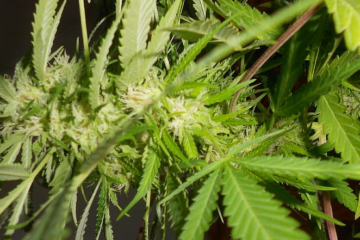Oregon made history in 2020 by becoming the first US state to decriminalize the possession of small amounts of hard drugs, such as heroin, cocaine, and methamphetamine. The measure, known as Measure 110, aimed to shift the focus from criminalization to treatment and harm reduction for people struggling with addiction. However, three years after the law took effect, it has faced growing criticism and challenges from various stakeholders, including lawmakers, law enforcement, public health experts, and voters. The main issues raised by the opponents of the policy are the surge in drug overdose deaths, especially from synthetic opioids like fentanyl, the lack of adequate treatment and recovery services, and the increase in public drug use and disorder.
Overdose Deaths Continue to Rise in Oregon
One of the most alarming consequences of the drug decriminalization policy in Oregon is the continued rise in drug overdose deaths, which reached a record high of 1,068 in 2023, according to the Oregon Health Authority. This represents a 40% increase from 2020, when 761 people died from drug overdoses. The main driver of this trend is the proliferation of fentanyl, a synthetic opioid that is 50 to 100 times more potent than morphine and can be mixed with other drugs without the user’s knowledge. Fentanyl was involved in 70% of the overdose deaths in 2023, up from 57% in 2020 Oregon had the largest percentage increase in synthetic opioid deaths among states that have reported their data for 2023.
Some critics of the decriminalization policy argue that it has removed the deterrent effect of criminal penalties and enabled more people to access and use drugs without fear of legal consequences. They also point out that the policy has not been accompanied by sufficient funding and expansion of treatment and recovery services, leaving many people with addiction without adequate help and support. For instance, a state audit found that only 1% of the people who received citations for drug possession sought help via a 24-hour hotline that was set up as part of the policy. Moreover, the policy has diverted millions of dollars from the state’s cannabis tax revenue, which was previously allocated to schools, mental health, and public safety, to fund the new addiction services.
Treatment and Recovery Services Remain Inadequate and Inaccessible
Another major challenge facing the drug decriminalization policy in Oregon is the lack of adequate and accessible treatment and recovery services for people with addiction. According to the Substance Abuse and Mental Health Services Administration, Oregon ranked 47th among states in terms of the percentage of people with substance use disorder who received treatment in 2020. The state also had a shortage of qualified addiction counselors, detoxification facilities, residential treatment beds, and medication-assisted treatment providers. The COVID-19 pandemic further exacerbated the situation by disrupting the delivery and availability of existing services and creating additional barriers for people seeking help.

Measure 110 promised to address these gaps by using the cannabis tax revenue and savings from reduced incarceration costs to fund a network of addiction recovery centers across the state. However, the implementation of this plan has been slow and uneven, with only 15 centers operating as of January 2024, and many of them offering limited or low-quality services. Some of the reasons for the delay and inefficiency include the lack of clear guidelines and oversight from the state, the difficulty of finding and retaining qualified staff, the resistance and skepticism from local communities, and the uncertainty and instability of the funding source. As a result, many people with addiction still face long waiting lists, high costs, and limited options for treatment and recovery in Oregon.
Public Drug Use and Disorder Increase in Urban Areas
A third issue that has sparked controversy and backlash over the drug decriminalization policy in Oregon is the increase in public drug use and disorder, especially in urban areas like Portland. The city has witnessed a visible rise in the number of people injecting, smoking, or snorting drugs in parks, sidewalks, and other public spaces, creating health and safety risks for themselves and others. The city has also experienced a surge in homelessness, crime, violence, and trash associated with drug use and addiction, affecting the quality of life and well-being of residents and businesses. Many people have expressed frustration and anger over the lack of enforcement and intervention from the authorities, as well as the perceived tolerance and indifference from the policymakers and advocates of the decriminalization policy.
Some supporters of the policy argue that public drug use and disorder are not caused by decriminalization, but by the underlying social and economic factors that drive addiction, such as poverty, trauma, mental illness, and lack of housing and health care. They also contend that criminalizing drug users does not solve the problem, but rather pushes them further into the margins of society and prevents them from accessing help and recovery. They advocate for more investment and innovation in harm reduction strategies, such as syringe exchange programs, overdose prevention sites, and safe supply initiatives, that aim to reduce the negative consequences of drug use and addiction, while respecting the dignity and autonomy of the people who use drugs.
The Future of Drug Decriminalization in Oregon
The drug decriminalization policy in Oregon has been hailed as a bold and progressive experiment that could inspire other states and countries to follow suit and adopt a more humane and effective approach to drug policy. However, the policy has also faced significant criticism and challenges from various quarters, who question its effectiveness, feasibility, and desirability. The policy has also become a divisive and polarizing issue among Oregonians, who have different views and experiences on the impact and implications of the policy.
The future of drug decriminalization in Oregon will depend largely on how the state addresses the issues and concerns raised by the opponents and critics of the policy, as well as how it evaluates and improves the implementation and outcomes of the policy. The state will also have to balance the interests and expectations of different stakeholders, including lawmakers, law enforcement, public health experts, treatment providers, advocates, and voters, who have different perspectives and priorities on drug policy. The state will also have to monitor and learn from the experiences and evidence of other jurisdictions that have adopted or are considering similar or alternative models of drug policy reform, such as Washington, California, Vermont, and Canada .
The drug decriminalization policy in Oregon is a complex and controversial experiment that has the potential to transform the way society deals with drug use and addiction. However, the policy also faces many challenges and uncertainties that require careful and continuous attention and adjustment. The policy is not a panacea or a final solution, but a starting point and a catalyst for further dialogue and action on drug policy.



